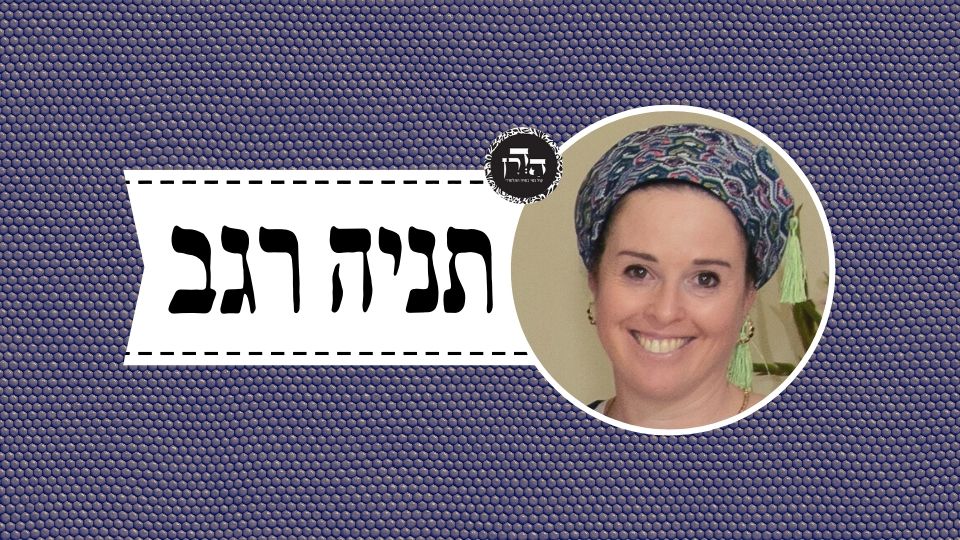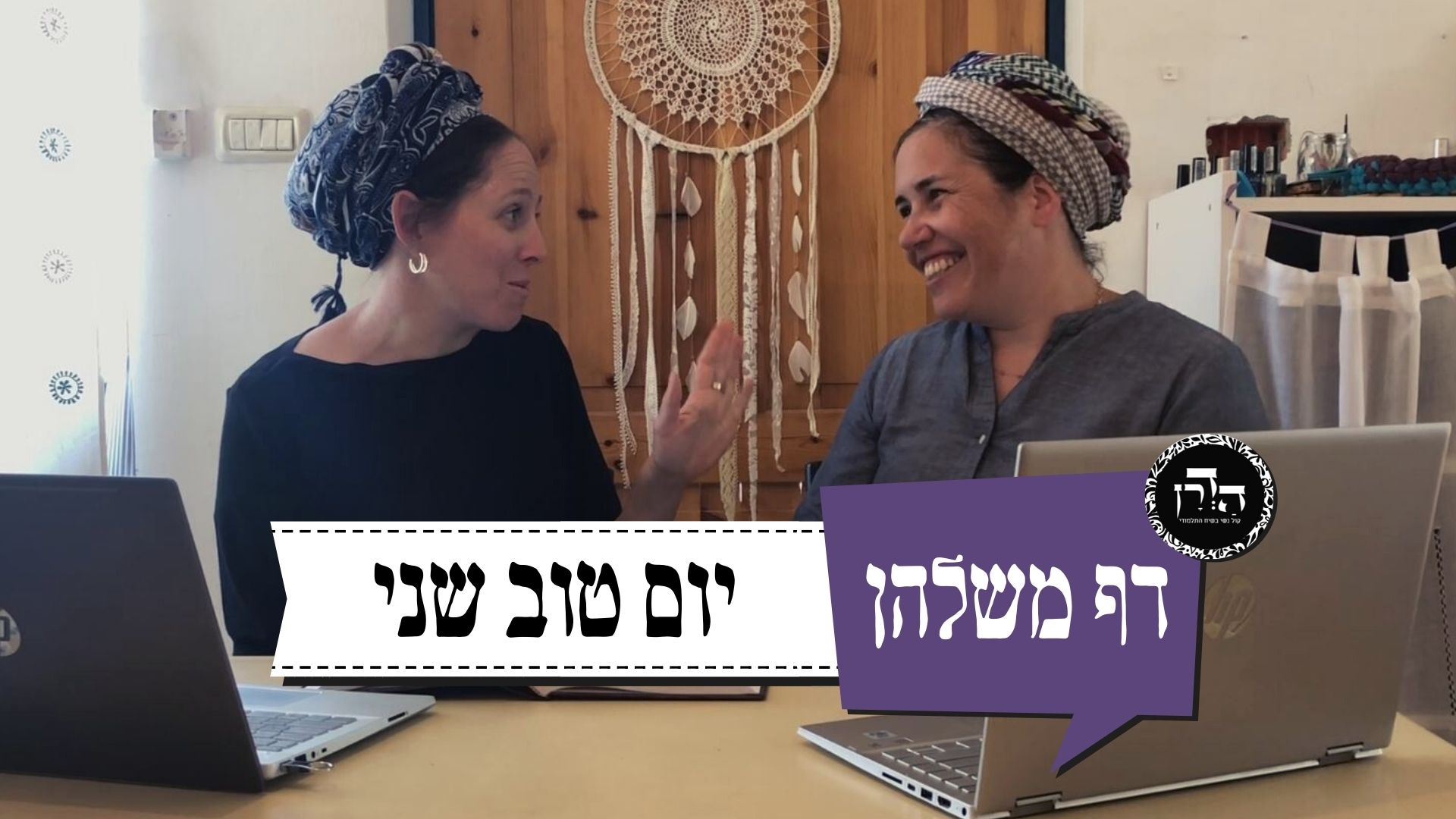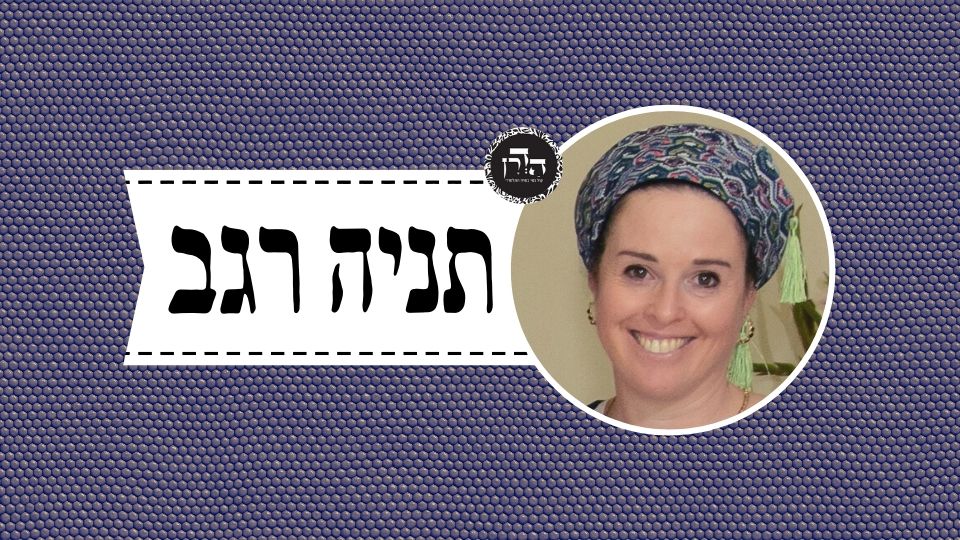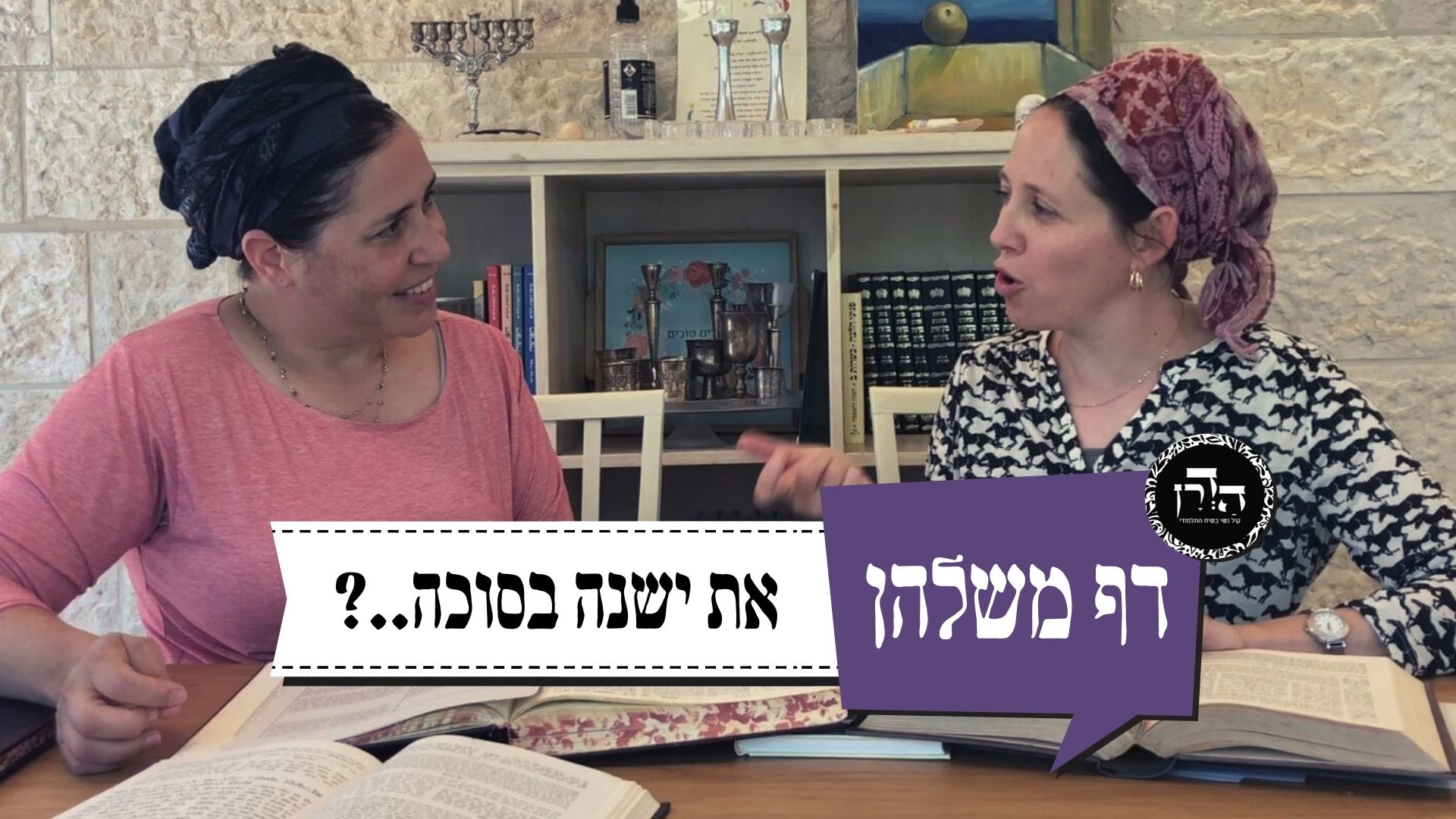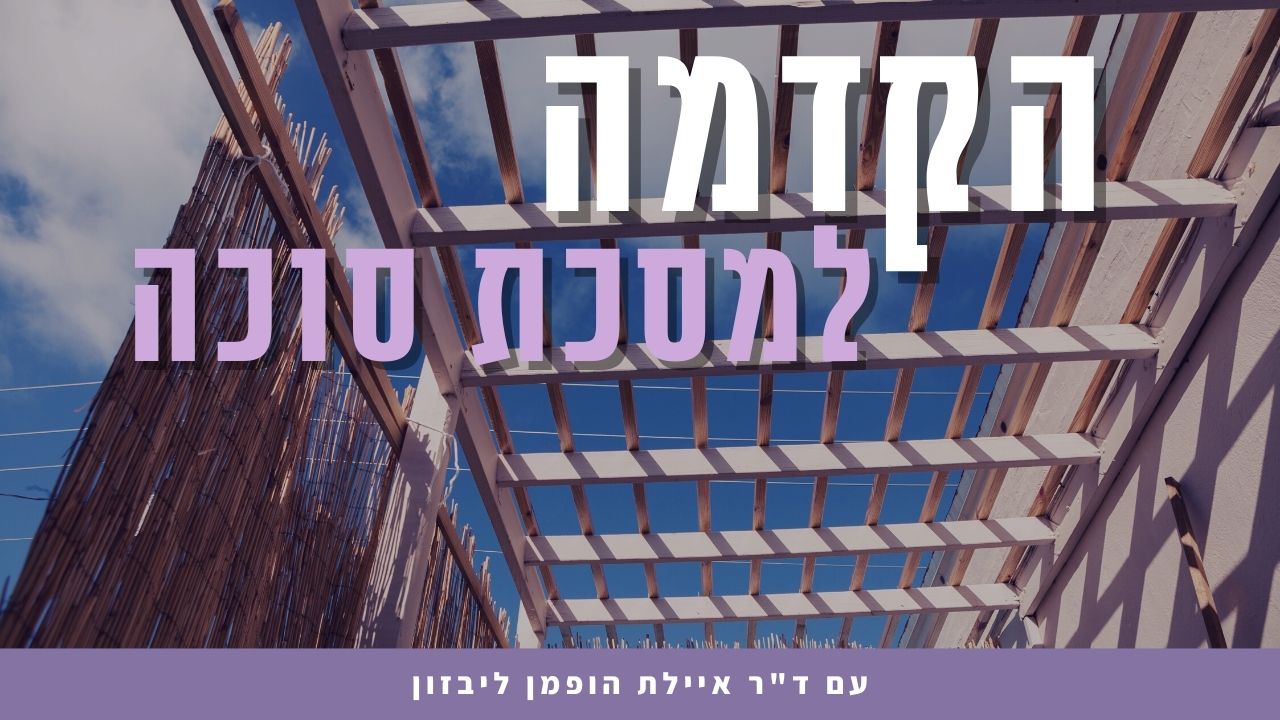סוכה כא
יָלֵיף ״אֹהֶל״ ״אֹהֶל״ מִמִּשְׁכָּן. כְּתִיב הָכָא: ״זֹאת הַתּוֹרָה אָדָם כִּי יָמוּת בְּאֹהֶל״, וּכְתִיב הָתָם: ״וַיִּפְרֹשׂ אֶת הָאֹהֶל עַל הַמִּשְׁכָּן״, מָה לְהַלָּן בִּידֵי אָדָם, אַף כָּאן בִּידֵי אָדָם. וְרַבָּנַן: ״אֹהֶל״ ״אֹהֶל״ רִיבָּה.
He derives by means of a verbal analogy that only a man-made tent transmits impurity, deriving the tent written with regard to impurity imparted by a corpse from the tent written with regard to the Tabernacle. It is written here with regard to impurity imparted by a corpse: “This is the teaching when a man dies in a tent” (Numbers 19:14). And it is written there with regard to the Tabernacle: “And he spread the tent over the Tabernacle” (Exodus 40:19). Just as there, with regard to the Tabernacle, the tent was established by a person, so too here, with regard to impurity of a corpse, it is a tent established by a person. And according to the Rabbis, because the passage dealing with impurity imparted by a corpse, i.e., tent tent, is repeated several times, this amplifies and includes any structure that provides shelter, even if it is not a standard tent.
וְסָבַר רַבִּי יְהוּדָה כׇּל אֹהֶל שֶׁאֵינוֹ עָשׂוּי בִּידֵי אָדָם אֵינוֹ אֹהֶל? וּרְמִינְהוּ: חֲצֵירוֹת הָיוּ בְּנוּיוֹת בִּירוּשָׁלַיִם עַל גַּבֵּי הַסֶּלַע, וְתַחְתֵּיהֶם חָלָל, מִפְּנֵי קֶבֶר הַתְּהוֹם. וּמְבִיאִין נָשִׁים עוּבָּרוֹת וְיוֹלְדוֹת שָׁם וּמְגַדְּלוֹת בְּנֵיהֶם שָׁם לַפָּרָה.
The Gemara asks: And does Rabbi Yehuda hold that the legal status of any tent that is not established by a person is not that of a tent? The Gemara raises a contradiction from a mishna (Para 3:2): Courtyards were built in Jerusalem atop the rock, and beneath these courtyards there was a space of at least a handbreadth due to the concern lest there is a grave in the depths. In that case, the space served as a barrier preventing the impurity from reaching the courtyards above. And they would bring pregnant women, and they would give birth there in those courtyards. And they would raise their children there and would not leave there with the children until they grew. All this was done so that the children would be untainted by any impurity and would be able to assist in the ritual of the red heifer, whose ashes are used to purify those impure with impurity imparted by a corpse.
וּמְבִיאִין שְׁוָורִים וְעַל גַּבֵּיהֶן דְּלָתוֹת, וְתִינוֹקוֹת יוֹשְׁבִין עַל גַּבֵּיהֶן וְכוֹסוֹת שֶׁל אֶבֶן בִּידֵיהֶם. הִגִּיעוּ לַשִּׁילוֹחַ, יָרְדוּ לְתוֹךְ הַמַּיִם וּמִילְּאוּם, וְעָלוּ וְיָשְׁבוּ לָהֶם. רַבִּי יוֹסֵי אוֹמֵר: מִמְּקוֹמוֹ הָיָה מְשַׁלְשֵׁל וּמְמַלֵּא, מִפְּנֵי קֶבֶר הַתְּהוֹם.
And once they reached age seven or eight and were capable of assisting in the performance of this ritual, the priests would bring oxen there. And they would place doors on the backs of these oxen, and the children would sit upon the doors and they would hold cups of stone, which are not susceptible to ritual impurity, in their hands. When they reached the Siloam pool, they descended into the water and filled the cups with water, and ascended and sat themselves on the doors. The water in the cups was mixed with the ashes of the heifer and used for sprinkling on the impure person or vessels. Rabbi Yosei says: The children did not descend from their oxen; rather, each child from his place on the door would lower the cup with a rope and fill it with water due to the concern lest there is a grave in the depths beneath the path leading from the oxen to the pool.
וְתַנְיָא, רַבִּי יְהוּדָה אוֹמֵר: לֹא הָיוּ מְבִיאִין דְּלָתוֹת, אֶלָּא שְׁוָורִים. וְהָא שְׁוָורִים, דְּאֹהֶל שֶׁאֵינוֹ עָשׂוּי בִּידֵי אָדָם הוּא, וְקָתָנֵי, רַבִּי יְהוּדָה אוֹמֵר: לֹא הָיוּ מְבִיאִין דְּלָתוֹת אֶלָּא שְׁוָורִים!
And it is taught in a baraita that Rabbi Yehuda says: They would not bring doors; rather they would bring only oxen. The size of the spinal column and the body of the animal was sufficient to constitute a tent and therefore served as a barrier before the impurity imparted by a grave in the depths. And this is difficult, as aren’t oxen a tent that is not established by a person; and it is taught that Rabbi Yehuda says: They did not bring doors; rather they brought only oxen. Apparently, the legal status of a tent that is not man-made is that of a tent.
כִּי אֲתָא רַב דִּימִי, אָמַר רַבִּי אֶלְעָזָר: מוֹדֶה רַבִּי יְהוּדָה כִּמְלֹא אֶגְרוֹף. תַּנְיָא נָמֵי הָכִי: וּמוֹדֶה רַבִּי יְהוּדָה בִּשְׁקִיפִין וּבִנְקִיקֵי הַסְּלָעִים.
When Rav Dimi came from Eretz Yisrael to Babylonia he said that Rabbi Elazar said: Rabbi Yehuda concedes that the legal status of a tent that is not man-made is that of a tent when the tent is a fistbreadth, which is more than a handbreadth in terms of length, width, and height. It is only when the tent is less than the size of a fist that Rabbi Yehuda holds that it is not a tent. That opinion is also taught in a baraita: And Rabbi Yehuda concedes in the case of caves and deep cavities in the rocks that their status is that of a tent even though they are not man-made.
וַהֲרֵי דֶּלֶת, דְּיֵשׁ בָּהּ כַּמָּה אֶגְרוֹפִין, וְקָתָנֵי, רַבִּי יְהוּדָה אוֹמֵר: לֹא הָיוּ מְבִיאִין דְּלָתוֹת אֶלָּא שְׁוָורִים! אָמַר אַבָּיֵי, לָא הוּצְרְכוּ לְהָבִיא דְּלָתוֹת.
The Gemara asks: But a door on the back of an ox is an object that measures several fistbreadths, and it is taught that Rabbi Yehuda says: They did not bring doors but only oxen. Apparently, a door does not constitute a tent, since that is not the manner in which a tent is typically established. Abaye said in response that Rabbi Yehuda did not say that the legal status of the door is not that of a tent; rather, he said: They did not need to bring doors because the oxen themselves were sufficiently broad.
רָבָא אָמַר: לֹא הָיוּ מְבִיאִין דְּלָתוֹת כׇּל עִיקָּר, שֶׁמִּפְּנֵי שֶׁדַּעְתּוֹ שֶׁל תִּינוֹק גַּסָּה עָלָיו, שֶׁמָּא יוֹצִיא רֹאשׁוֹ אוֹ אֶחָד מֵאֵבָרָיו, וְיִטָּמֵא
Rava said Rabbi Yehuda’s statement should be explained differently. They would not bring doors at all. Because a child has an exaggerated sense of self-confidence due to the width of the door, he might allow himself to move from side to side and as a result, perhaps he will extend his head or one of his limbs beyond the edge of the door and will become impure
בְּקֶבֶר הַתְּהוֹם.
with impurity imparted by a grave in the depths.
תַּנְיָא כְּווֹתֵיהּ דְּרָבָא. רַבִּי יְהוּדָה אוֹמֵר: לֹא הָיוּ מְבִיאִין דְּלָתוֹת כׇּל עִיקָּר, מִפְּנֵי שֶׁדַּעְתּוֹ שֶׁל תִּינוֹק גַּסָּה עָלָיו, שֶׁמָּא יוֹצִיא רֹאשׁוֹ אוֹ אֶחָד מֵאֵבָרָיו וְיִטָּמֵא בְּקֶבֶר הַתְּהוֹם. אֶלָּא מְבִיאִין שְׁוָורִים הַמִּצְרִים שֶׁכְּרֵיסוֹתֵיהֶן רְחָבוֹת, וְהַתִּינוֹקוֹת יוֹשְׁבִין עַל גַּבֵּיהֶן, וְכוֹסוֹת שֶׁל אֶבֶן בִּידֵיהֶן. הִגִּיעוּ לַשִּׁילוֹחַ — יָרְדוּ וּמִלְּאוּם, וְעָלוּ וְיָשְׁבוּ לָהֶן עַל גַּבֵּיהֶן.
The Gemara comments: It is taught in a baraita in accordance with the opinion of Rava, as Rabbi Yehuda says: They would not bring doors at all, because a child has an exaggerated sense of self-confidence and perhaps he will extend his head or one of his limbs beyond the edge of the door and will become impure with impurity imparted by a grave in the depths. Rather, they would bring Egyptian oxen whose bellies are broad, and the children would sit upon them and they would hold cups of stone in their hands. When they reached the Siloam pool they descended and filled them, and ascended and sat themselves on the backs of the oxen.
וַהֲרֵי מִטָּה, דְּיֵשׁ בָּהּ כַּמָּה אֶגְרוֹפִים, וּתְנַן, רַבִּי יְהוּדָה אוֹמֵר: נוֹהֲגִים הָיִינוּ שֶׁהָיִינוּ יְשֵׁנִים תַּחַת הַמִּטָּה בִּפְנֵי הַזְּקֵנִים! שָׁאנֵי מִטָּה, הוֹאִיל וּלְגַבָּהּ עֲשׂוּיָה. שְׁוָורִים נָמֵי לְגַבָּן עֲשׂוּיִם!
The Gemara asks: But with regard to a bed, which measures several fistbreadths, didn’t we learn in the mishna that Rabbi Yehuda says: It was our custom that we would sleep beneath the bed before the Elders? Apparently, despite the fact that a bed measures several handbreadths, its legal status is not that of a tent. The Gemara answers: A bed is different, since it is designed specifically for use upon it; therefore, the status of the space beneath it is not that of a tent. The Gemara asks: Aren’t oxen like those used to transport the children to bring water for the red heifer also designated specifically for use upon them and nevertheless, Rabbi Yehuda deems their spinal column and bellies a tent.
כִּי אֲתָא רָבִין אָמַר רַבִּי אֶלְעָזָר: שָׁאנֵי שְׁוָורִים הוֹאִיל וּמְגִינִּים עַל הָרוֹעִים בַּחַמָּה מִפְּנֵי הַחַמָּה וּבַגְּשָׁמִים מִפְּנֵי הַגְּשָׁמִים. אִי הָכִי, מִטָּה נָמֵי — הוֹאִיל וּמְגִינָּה עַל מִנְעָלִים וְסַנְדָּלִים שֶׁתַּחְתֶּיהָ!
When Ravin came to Babylonia from Eretz Yisrael he said that Rabbi Elazar said: Oxen are different since they protect the shepherds in the sun from the sun, and in the rain from the rain. Shepherds would lie beneath the bellies of the oxen as protection from the elements. The Gemara asks: If so, i.e., if an ox is rendered a tent because it provides protection, even if its primary designation is for use upon it, then the status of a bed too should be that of a tent, since it protects shoes and sandals that are placed beneath it.
אֶלָּא אָמַר רָבָא: שָׁאנֵי שְׁוָורִים, הוֹאִיל וַעֲשׂוּיִם לְהָגֵין עַל בְּנֵי מֵעַיִם שֶׁלָּהֶן, שֶׁנֶּאֱמַר: ״עוֹר וּבָשָׂר תַּלְבִּישֵׁנִי וּבַעֲצָמוֹת וְגִידִים תְּסוֹכְכֵנִי״.
Rather, Rava rejected that explanation and said: Oxen are different and their status is that of a tent since their bellies and backs are made to protect their innards, as it is stated: “With skin and flesh You have clothed me, and with bones and sinews You have knitted me together” (Job 10:11). Since flesh and skin are mentioned in the verse as providing shelter, the status of the oxen is that of a tent.
וְאִי בָּעֵית אֵימָא: רַבִּי יְהוּדָה לְטַעְמֵיהּ, דְּאָמַר: סוּכָּה דִּירַת קֶבַע בָּעֵינַן. וְהָוֵה לֵיהּ מִטָּה דִּירַת עֲרַאי, וְסוּכָּה אֹהֶל קֶבַע — וְלָא אָתֵי אֹהֶל עֲרַאי וּמְבַטֵּל אֹהֶל קֶבַע.
And if you wish, say instead: In this case Rabbi Yehuda conforms to his reasoning, as he stated elsewhere: We require a sukka that is a permanent residence. The bed in a sukka is a temporary residence, and the sukka is a permanent tent; and a temporary tent does not come and negate a permanent tent. The permanent sukka is significant and that significance supersedes any temporary structure within it. Therefore, in Rabbi Yehuda’s opinion, the status of the bed is not that of a tent.
וְהָא רַבִּי שִׁמְעוֹן דְּאָמַר נָמֵי — סוּכָּה דִּירַת קֶבַע בָּעֵינַן, (הָא) וְאָתֵי אֹהֶל עֲרַאי וּמְבַטֵּל אֹהֶל קֶבַע! (אִין) בְּהָא פְּלִיגִי, מָר סָבַר: אָתֵי אֹהֶל עֲרַאי וּמְבַטֵּל אֹהֶל קֶבַע, וּמַר סָבַר: לָא אָתֵי אֹהֶל עֲרַאי וּמְבַטֵּל אֹהֶל קֶבַע.
The Gemara asks: But according to Rabbi Shimon, who also stated that we require a sukka that is a permanent residence, nevertheless, a temporary tent comes and negates a permanent tent. The Gemara answers: Yes, and that is the point over which they disagree. One Sage, Rabbi Shimon, holds: A temporary tent comes and negates a permanent tent, and one Sage, Rabbi Yehuda, holds: A temporary tent does not come and negate a permanent tent.
אָמַר רַבִּי שִׁמְעוֹן: מַעֲשֶׂה בְּטָבִי עַבְדּוֹ. תַּנְיָא, אָמַר רַבִּי שִׁמְעוֹן: מִשִּׂיחָתוֹ שֶׁל רַבָּן גַּמְלִיאֵל לָמַדְנוּ שְׁנֵי דְבָרִים: לָמַדְנוּ שֶׁעֲבָדִים פְּטוּרִים מִן הַסּוּכָּה, וְלָמַדְנוּ שֶׁהַיָּשֵׁן תַּחַת הַמִּטָּה לֹא יָצָא יְדֵי חוֹבָתוֹ.
The mishna relates that Rabbi Shimon said, contrary to the opinion of Rabbi Yehuda: There was an incident involving Tavi, the Canaanite slave of Rabban Gamliel who was sleeping beneath the bed, and Rabban Gamliel claimed that Tavi did so because he was a Torah scholar and knew that slaves are exempt from the mitzva of sukka. It is taught in a baraita that Rabbi Shimon said: From the conversation of Rabban Gamliel we learned two matters. We learned that Canaanite slaves are exempt from the mitzva of sukka, and we learned that one who sleeps beneath the bed did not fulfill his obligation.
וְלֵימָא: ״מִדְּבָרָיו שֶׁל רַבָּן גַּמְלִיאֵל״? מִילְּתָא אַגַּב אוֹרְחֵיהּ קָא מַשְׁמַע לַן, כִּי הָא דְּאָמַר רַב אַחָא בַּר אַדָּא, וְאָמְרִי לַהּ אָמַר רַב אַחָא בַּר אַדָּא אָמַר רַב הַמְנוּנָא אָמַר רַב: מִנַּיִן שֶׁאֲפִילּוּ שִׂיחַת תַּלְמִידֵי חֲכָמִים, צְרִיכָה לִימּוּד — שֶׁנֶּאֱמַר: ״וְעָלֵהוּ לֹא יִבּוֹל״.
The Gemara questions the formulation of the baraita. And let Rabbi Shimon say: From the statement of Rabban Gamliel. Why did he use the atypical expression: From the conversation of Rabban Gamliel? The Gemara answers: Through this expression he teaches us another matter in passing, like that which Rabbi Aḥa bar Adda said, and some say that Rabbi Aḥa bar Adda said that Rabbi Hamnuna said that Rav said: From where is it derived that even the conversation of Torah scholars require analysis, even when the intention of the speaker was apparently not to issue a halakhic ruling? It is as it is stated with regard to the righteous: “Which brings forth its fruit in its season and whose leaf does not wither” (Psalms 1:3). This teaches that with regard to a Torah scholar, not only is his primary product, his fruit, significant but even ancillary matters that stem from his conversation, his leaves, are significant.
מַתְנִי׳ הַסּוֹמֵךְ סוּכָּתוֹ בְּכַרְעֵי הַמִּטָּה — כְּשֵׁרָה. רַבִּי יְהוּדָה אוֹמֵר: אִם אֵינָהּ יְכוֹלָה לַעֲמוֹד בִּפְנֵי עַצְמָהּ — פְּסוּלָה.
MISHNA: One who supports his sukka on the legs of the bed, i.e., he leans the sukka roofing on a bed, the sukka is fit. Rabbi Yehuda says: If the sukka cannot stand in and of itself without support of the bed, it is unfit.
גְּמָ׳ מַאי טַעְמֵיהּ דְּרַבִּי יְהוּדָה? פְּלִיגִי בַּהּ רַבִּי זֵירָא וְרַבִּי אַבָּא בַּר מֶמֶל. חַד אָמַר: מִפְּנֵי שֶׁאֵין לָהּ קֶבַע. וְחַד אָמַר: מִפְּנֵי שֶׁמַּעֲמִידָהּ בְּדָבָר הַמְקַבֵּל טוּמְאָה.
GEMARA: The Gemara asks: What is the rationale for the statement of Rabbi Yehuda deeming this sukka unfit? Rabbi Zeira and Rabbi Abba bar Memel disagree with regard to the rationale. One said: It is unfit because it lacks permanence. The sukka is not stable enough, as if the bed is moved the sukka will collapse. And one said: It is unfit because he is supporting the roofing with an object that is susceptible to ritual impurity, as the bedframe is a vessel. Not only the roofing, but that which supports the roofing as well may not be susceptible to ritual impurity.
מַאי בֵּינַיְיהוּ? כְּגוֹן שֶׁנָּעַץ שַׁפּוּדִין שֶׁל בַּרְזֶל וְסִיכֵּךְ עֲלֵיהֶם. לְמַאן דְּאָמַר לְפִי שֶׁאֵין לָהּ קֶבַע — הֲרֵי יֵשׁ לָהּ קֶבַע. וּמַאן דְּאָמַר מִפְּנֵי שֶׁמַּעֲמִידָהּ בְּדָבָר הַמְקַבֵּל טוּמְאָה — הֲרֵי מַעֲמִידָהּ בְּדָבָר הַמְקַבֵּל טוּמְאָה.
The Gemara asks: What is the practical difference between them? The Gemara explains: The difference is in a case where one wedged iron skewers into the ground and roofed the sukka upon them. According to the one who said that the reason the sukka is unfit is because it lacks permanence, this sukka has permanence, and it is fit. However, the one who said the reason the sukka is unfit is because he is supporting the roofing with an object that is susceptible to ritual impurity, he is supporting it with an object that is susceptible to ritual impurity, so it is unfit.
אָמַר אַבָּיֵי: לֹא שָׁנוּ אֶלָּא סָמַךְ. אֲבָל סִיכֵּךְ עַל גַּב הַמִּטָּה — כְּשֵׁרָה. מַאי טַעְמָא? לְמַאן דְּאָמַר לְפִי שֶׁאֵין לָהּ קֶבַע — הֲרֵי יֵשׁ לָהּ קֶבַע. לְמַאן דְּאָמַר מִפְּנֵי שֶׁמַּעֲמִידָהּ בְּדָבָר הַמְקַבֵּל טוּמְאָה — הֲרֵי אֵין מַעֲמִידָהּ בְּדָבָר הַמְקַבֵּל טוּמְאָה.
Abaye said: The Sages taught this dispute only in a case where one leaned the roofing on the bed. However, if one placed the roofing atop the bed, i.e., he affixed poles to the bed and the roofing is supported by those poles, everyone agrees that the sukka is fit. What is the reason that it is fit? According to the one who said that the sukka is unfit because it lacks permanence, this sukka has permanence as even if the bed is moved, the roofing will move with it and will not collapse. And according to the one who said the sukka is unfit because he supports it with an object that is susceptible to ritual impurity, in this case he is not supporting it with an object that is susceptible to ritual impurity, as the roofing is not supported by the bed.


